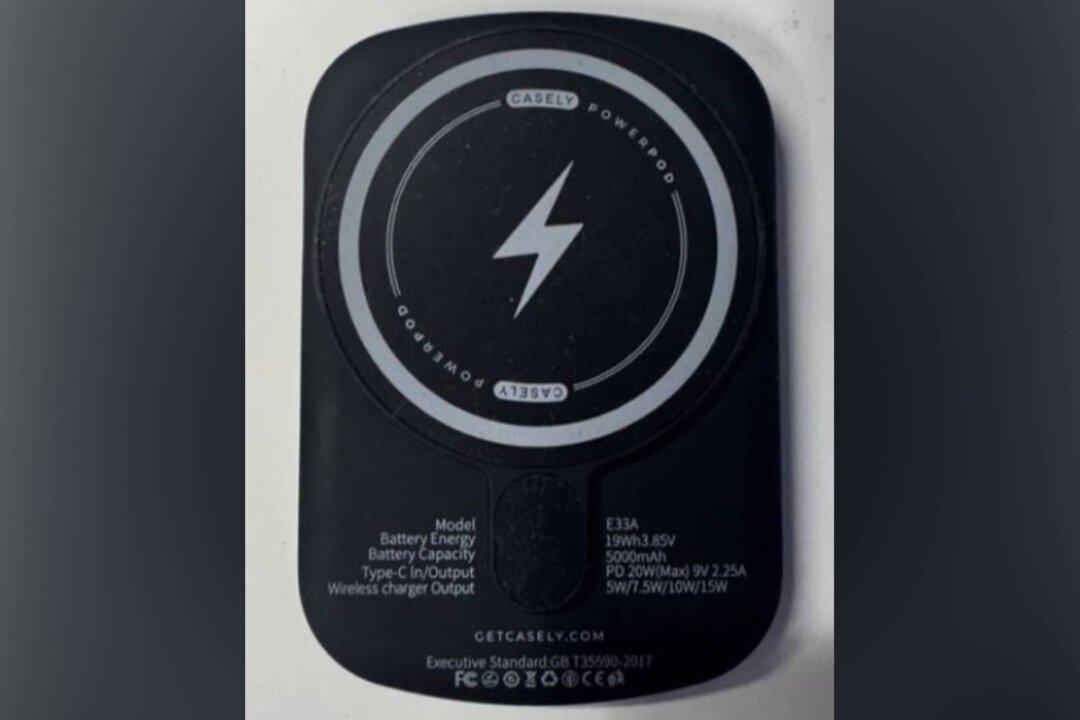New York-based Casely Inc. is recalling roughly 429,200 power banks sold across the United States, citing a fire risk posed by its batteries, the Consumer Product Safety Commission (CPSC) said in an April 17 recall notice.
The recall is applicable to Casely Power Pods 5000mAh portable MagSafe wireless phone charger with model number E33A.





